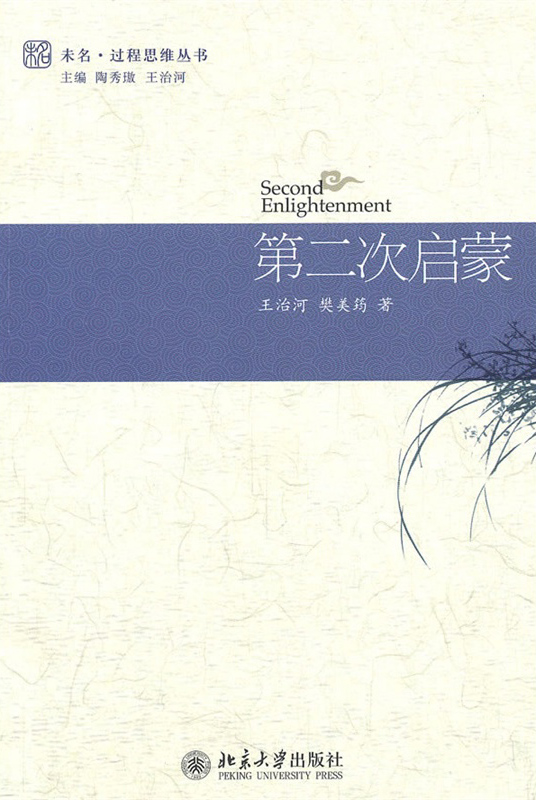Solving the modern predicament

Second Enlightenment
Author: Wang Zhihe and Fan Meijun
Publisher: Peking University Press
If something goes wrong in a given era, philosophy must be at fault. In light of environmental problems, an increasing gap between the rich and the poor, and the loss of faith among people, it is the responsibility of contemporary thinkers to search for a philosophical answer for the modern predicament. The Second Enlightenment by Wang Zhihe and Fan Meijun engages in this philosophical pursuit.
From a postmodern constructism perspective, the book is intended to propose and reflect on the limitations of the First Enlightenment, which refers to the historical intellectual movement in Europe in the 17th and 18th centuries that advocated reason and individual freedom as well as the May Fourth movement in 1919 in China, which advocated democracy and science.
Though there is little doubt that the First Enlightenment in both Europe and China played a revolutionary role in liberating people from autocratic tyranny and ignorance, the remarkable achievements of modernization came with an extremely high price.
In summary, the limitations can be listed as follow: an imperialistic attitude toward nature, a racist attitude toward dissenters, a nihilistic attitude toward tradition, a worship of science and reason, a one-dimensional understanding of freedom, and a homogenized understanding of democracy.
The authors, however, did not completely dismiss the First Enlightenment. Rather, they suggested that the so-called Second Enlightenment, also known as postmodern enlightenment, draws upon all the greatest achievements of the First Enlightenment while adopting new approaches to learning/education, economic development, leadership, governance, and even more complex ways of thinking.
In contrast to the Western-centered First Enlightenment, the Second Enlightenment will suit both the East and the West. Some concepts put forth in the book contain Chinese and Western concepts, such as “absolute freedom,” “harmony with difference,” “complementary awareness” and “the postmodern green lifestyle,” drawing a baseline for the future blueprint of the Second Enlightenment.
Guided by these ideas, we might be able to get rid of the primitive survival logic and mitigate the destructive morality bred by desires in order to restore the glory of the human spirit, the book argues.
